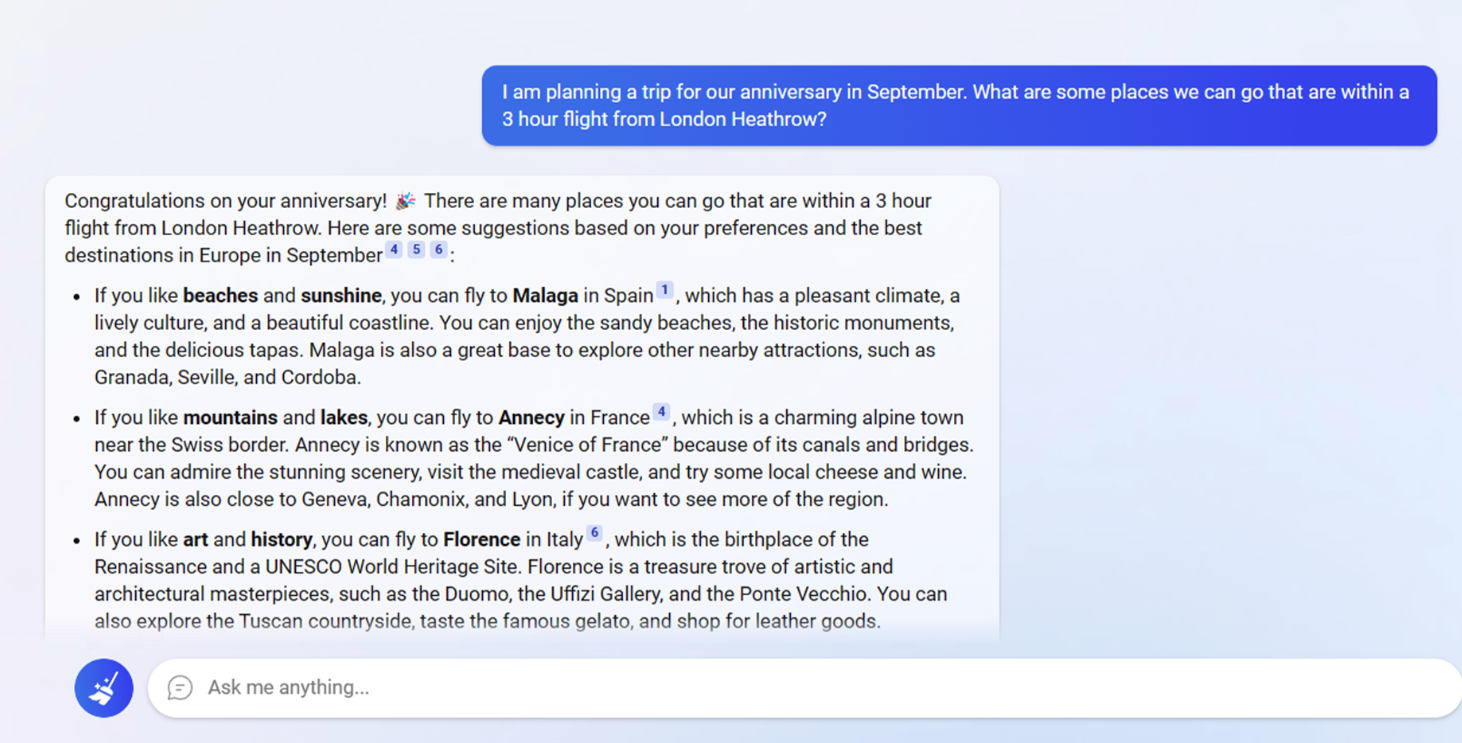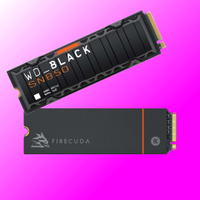Bing's cool new AI chat feature still doesn't solve the biggest problem with AI-generated content
It's the search engine equivalent of "saved you a click," but worse.

Microsoft's latest version of Bing features an AI-powered chatbot designed to answer all your burning questions. The world's second most popular search engine clearly hopes this AI gamble will pay off, but I imagine the sites whose content is featured in these results won't be too pleased.
Bing's new chat feature responds to questions with long-form answers in an easy-to-read conversational format. If you've used OpenAI's ChatGPT before, it's essentially that. Microsoft says this feature is "more powerful than ChatGPT and customized specifically for search."
Along with the usual search results, the Chat feature lets users refine the information they receive. In one of the demos embedded below, it breaks down the differences between cheap TVs after a couple of follow-up queries with the AI.
The AI-powered Bing gets its answers the same way AI art is generated: scraping information from the internet. And much like AI art, the creators of the content the system is trained on receive little to no attribution or compensation. There are little numbered boxes in the answers that act as footnotes, so you know where the content came from, but that doesn't give the user much incentive to click when all the relevant information is already in front of them. Let's be honest, how often have you clicked on the site in the footnotes when you look up something on Wikipedia?
This is super cool.. a new chat integration will let you fine tune your searches in real time. pic.twitter.com/LbXKvAig1xFebruary 7, 2023
In this click-based economy, less traffic means less revenue for the site creating the content feeding the machine. In the long term, this affects the sustainability of websites that make money on creating genuinely original walkthroughs, how-tos and buying guides.
In its current state, Google already has a problem with how it handles link attribution. In 2019, a law was passed in France that makes Google only show the headlines and names of press publications in its search results for users in the EU. It's up to the content publishers themselves to decide if it wants a snippet of an article to appear in Google search results. This all started because news outlets in France were trying to get Google to pay royalties for the clicks it was diverting away from websites.
We've already seen some legal challenges against AI art tools, like Stable Diffusion getting sued by Getty Images for copyright violations. How long before big online publishers do the same?
Keep up to date with the most important stories and the best deals, as picked by the PC Gamer team.
One potential answer would be for AI-powered search engines to pay some form of compensation or royalties for the content they scrape. So far, though, there's yet to be any sign from either Microsoft or Google that they're interested in doing so.
And if you're thinking, "Who cares, no one uses Bing," well, Google just announced its own ChatGPT-like AI chatbot called Bard that will go into public testing in the next few weeks, so this won't be the last we hear about these AI-powered search tools.

Best SSD for gaming: The best solid state drives around
Best PCIe 4.0 SSD for gaming: Speedy drives
The best NVMe SSD: Slivers of SSD goodness
Best external hard drives: Expand your horizons
Best external SSDs: Fast, solid, and portable

Jorge is a hardware writer from the enchanted lands of New Jersey. When he's not filling the office with the smell of Pop-Tarts, he's reviewing all sorts of gaming hardware, from laptops with the latest mobile GPUs to gaming chairs with built-in back massagers. He's been covering games and tech for over ten years and has written for Dualshockers, WCCFtech, Tom's Guide, and a bunch of other places on the world wide web.


